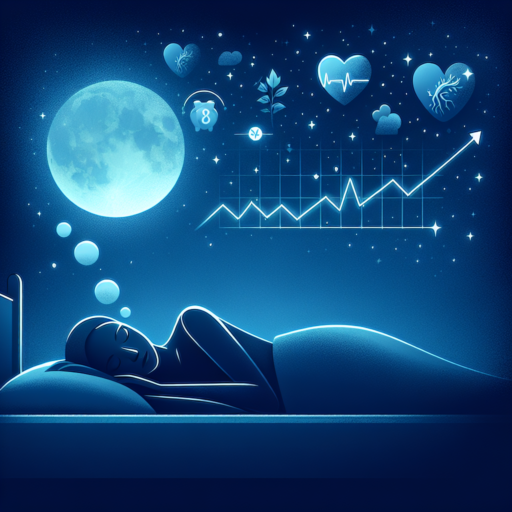What is normal deep sleep time?
Understanding the normal deep sleep time is crucial for optimizing restorative sleep, which plays a vital role in physical and mental health. Deep sleep, also known as slow-wave sleep, accounts for approximately 13-23% of a night’s rest for adults. This stage is paramount for memory consolidation, cellular repair, and boosting the immune system.
The average adult requires about 1 to 1.5 hours of deep sleep per night, which equates to roughly 20% of the total sleep time. However, this duration can vary significantly from person to person and may decrease with age. Deep sleep is most abundant in the first half of the night, making uninterrupted sleep particularly important.
Individuals seeking to maximize their deep sleep time should consider adopting a regular sleep schedule, minimizing exposure to blue light before bedtime, and creating a restful sleeping environment. These strategies can help enhance the quality of sleep and increase the chances of achieving adequate deep sleep. Keeping track of sleep patterns through apps or wearable technology can also provide valuable insights into one’s sleep health.
Is 40 minutes of deep sleep good?
When discussing sleep quality, the topic of deep sleep, particularly its duration, frequently surfaces. Many wonder if a mere 40 minutes of deep sleep is beneficial. Deep sleep, also known as slow-wave sleep, plays a crucial role in our overall sleep cycle, aiding in physical recovery, memory consolidation, and the regulation of various bodily functions. Consequently, understanding the significance of its duration is paramount for optimizing health.
The National Sleep Foundation suggests that adults require approximately 1.5-1.8 hours of deep sleep per night, which is about 20-25% of total sleep time. By these standards, 40 minutes may seem insufficient. However, it is essential to note that the quality of deep sleep can be as critical as its duration. Individual needs can vary markedly, with some finding that a condensed period of deep sleep, like 40 minutes, can still allow them to feel rested and rejuvenated.
It is also worth considering the role of sleep cycles. During a typical night, a person cycles through different stages of sleep, including light sleep, deep sleep, and REM. Each cycle lasts about 90 minutes, and deep sleep occupies a portion of this cycle. Achieving more cycles can contribute to a higher total of deep sleep. Therefore, it’s not solely the duration of deep sleep that matters but also the number and quality of these cycles throughout the night.
In summary, while 40 minutes of deep sleep might be below the recommended duration for most adults, the impact on health and well-being can vary. Factors such as sleep cycle completion, the proportion of deep sleep to other sleep stages, and individual health and lifestyle considerations play vital roles. It’s beneficial to look at the broader context of one’s sleep patterns and quality, rather than fixating on a single aspect like the duration of deep sleep alone.
Which is better, REM or deep sleep?
The debate between REM (Rapid Eye Movement) sleep and deep sleep is a nuanced one, as both stages play crucial roles in our overall health and well-being. REM sleep is often associated with the process of dreaming, memory consolidation, and emotional regulation. During this phase, your brain activity increases, resembling that of being awake. This stage is essential for cognitive functions and psychological health.
On the other hand, deep sleep, or slow-wave sleep, is the most restorative phase of sleep. It’s during this stage that the body repairs muscles and tissues, stimulates growth and development, improves immune function, and builds up energy for the next day. Deep sleep is fundamental for physical recovery and health.
Comparing their Benefits
- REM Sleep: Enhances memory and learning, supports emotional and psychological health, and plays a role in mood regulation.
- Deep Sleep: Facilitates physical recovery, boosts immune system function, and supports growth and development.
Understanding the unique benefits of both REM sleep and deep sleep underscores the importance of a balanced sleep cycle. Rather than viewing one as better than the other, it’s essential to recognize that a healthy sleep pattern involves cycling through all stages of sleep, including both REM and deep sleep, to support overall health.
No se han encontrado productos.
Is 4.5 hours of deep sleep too much?
The question of whether 4.5 hours of deep sleep is excessive hinges on understanding the specifics of sleep stages and their benefits. Deep sleep, also known as slow-wave sleep, is crucial for physical recovery, memory consolidation, and hormone regulation. While the optimal amount of deep sleep varies by age and individual health, experts generally agree that achieving a balanced sleep cycle is key.
Typically, adults experience deep sleep for 20-25% of their total sleep time. For an average 8-hour sleep period, this translates to approximately 1.5 to 2 hours of deep sleep. Therefore, attaining 4.5 hours of deep sleep might seem unusually high for most individuals. It’s important to consider whether this extended deep sleep duration might be a response to physical exhaustion, stress, or recovery from sleep deprivation.
Monitoring your sleep patterns with a smart device or a sleep tracker can provide insights into your sleep stages. If consistently experiencing extended periods of deep sleep, it may be beneficial to examine lifestyle factors, diet, stress levels, and physical activity, as these can influence sleep quality and duration. Engaging with a healthcare provider can also help determine if your sleep pattern is optimal for your health needs.




